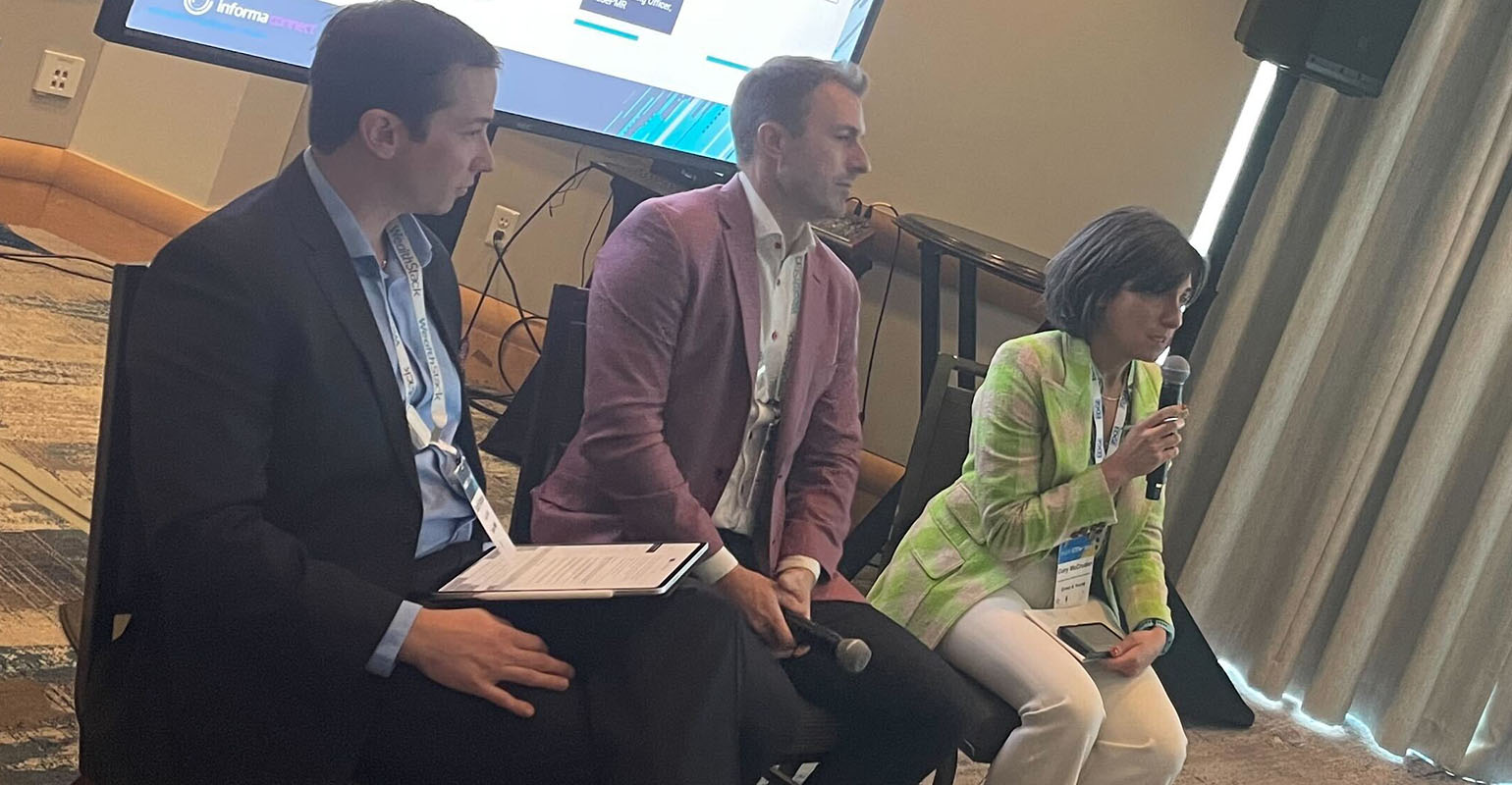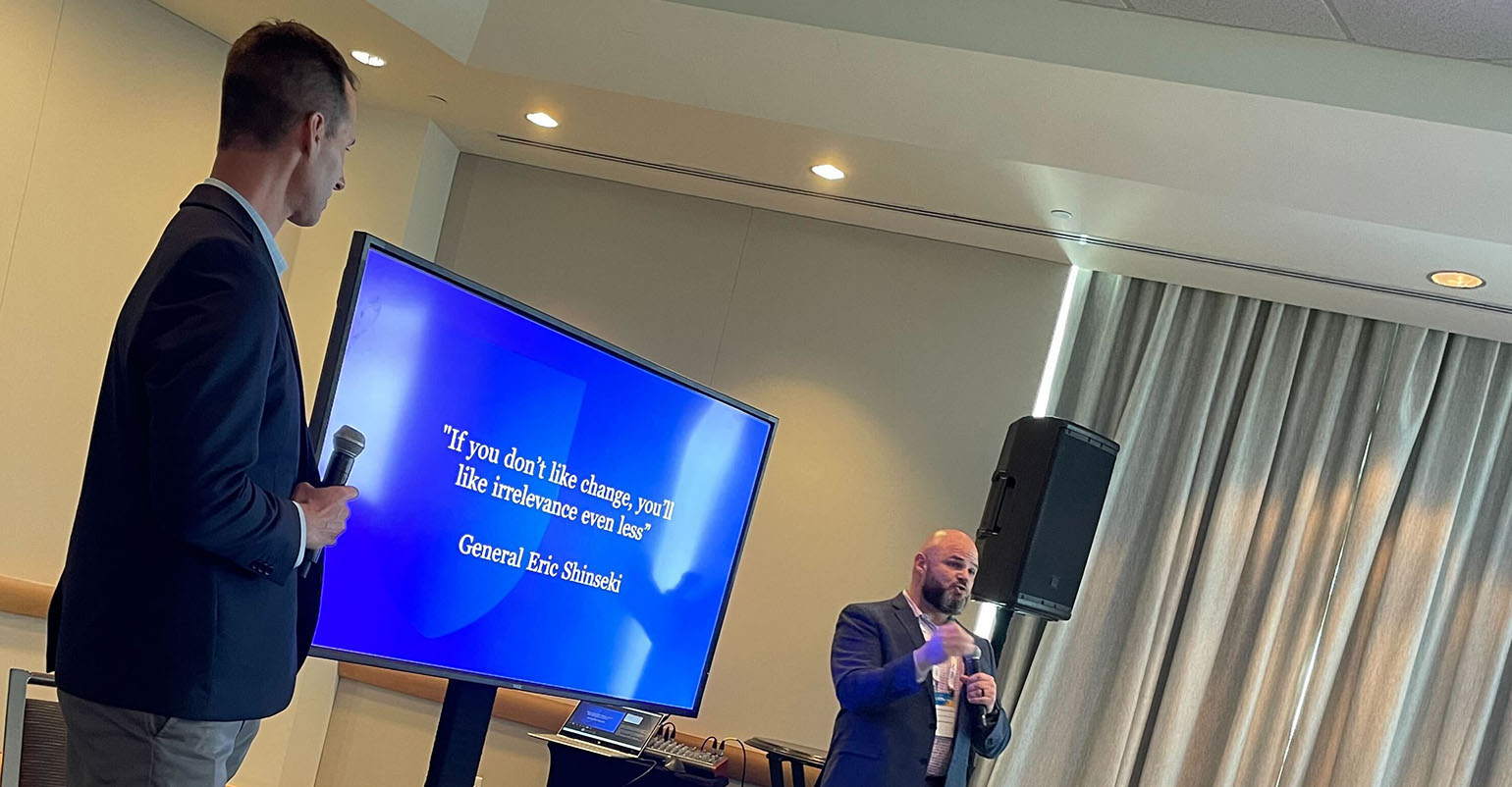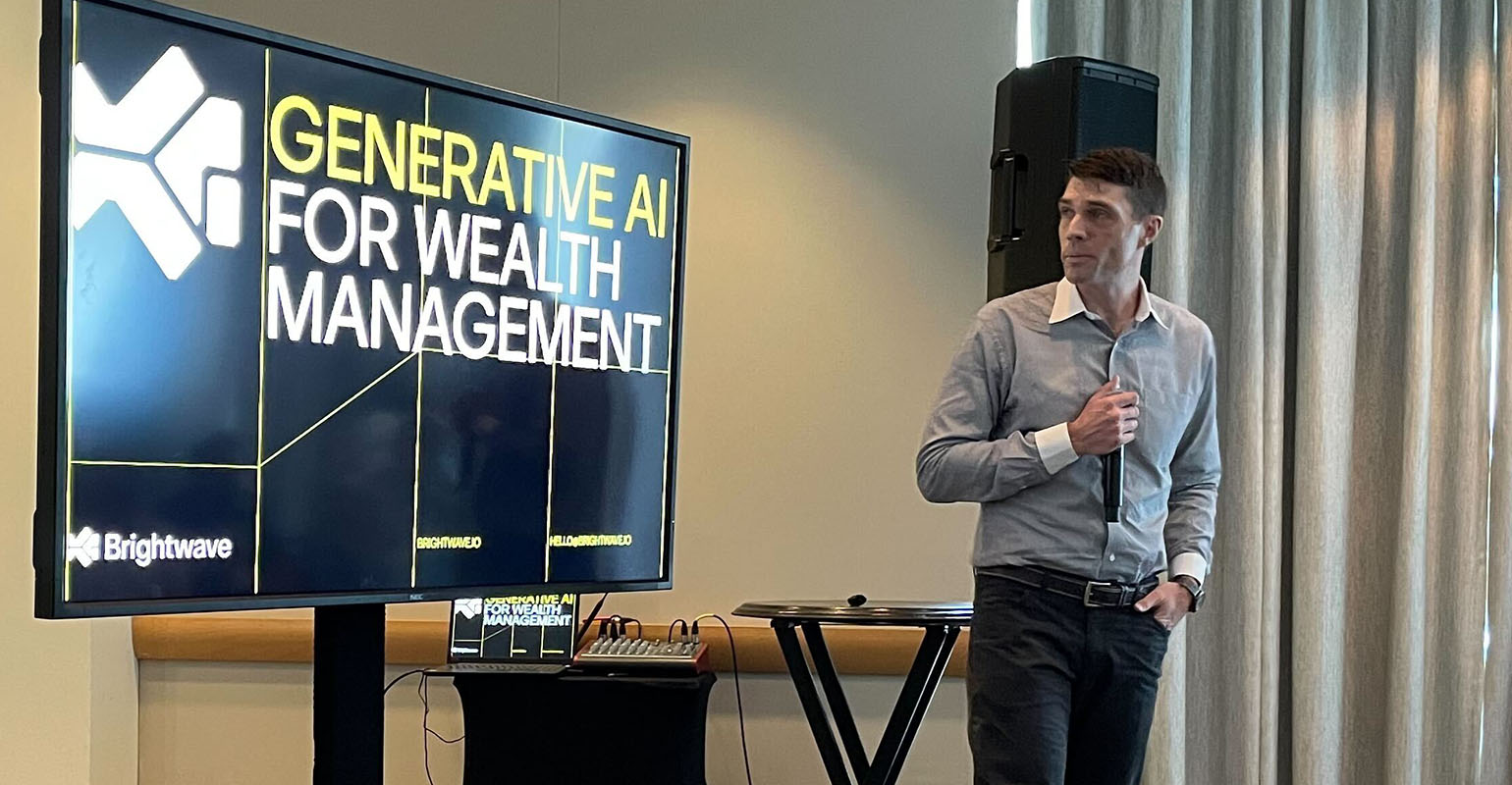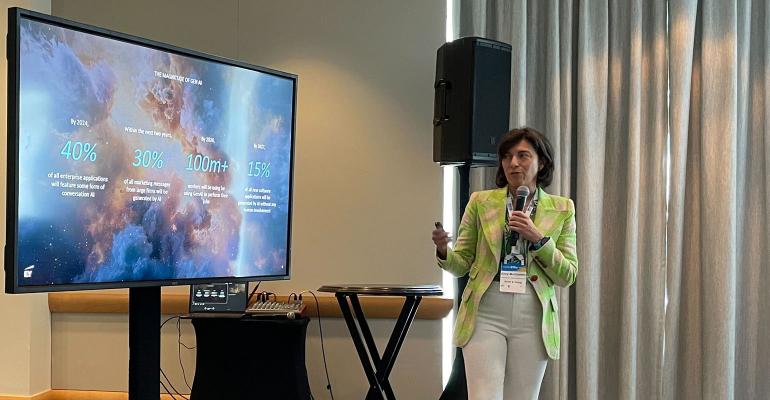Think Twice Before Giving AI Client Data
The more specific personal data generative AI has, the better output it will produce. However, advisors should think twice before feeding client information into any engine they come across.
Ashley Longabaugh, principal analyst at Celent, led a discussion with Ritik Malhotra, CEO and co-founder of Savvy Wealth, Gabe Rissman, co-founder and president of YourStake, and Alec Crawford, founder and CEO of Artificial Intelligence Risk about “Navigating the AI-Driven Future of Wealth Managemen.”
Crawford said advisors should never put client information into something like ChatGPT. If firms are going to take advantage of this technology, they should instead use separate software programs with their own internal large language models.
“Larger institutions are going to have to be very careful about what is coming out of these models,” he said.
And, due to the problem of hallucinations in generative AI, Malhotra said advisors can not trust the output of these models without making sure it’s right.
“Look for high-quality sources,” he said. “Until proven otherwise, it is a low-quality source. The onus is on you to verify if it’s correct.”
Future Advisors Must Pick Up Where AI Falls Short
R. Scott Victoria, COO of TradePMR; Ron Bullis, CEO of LifeWorks; and EY's Cory McCruden
The value advisors give to clients has shifted over the years and that rate of change will only increase over the next decade. Human connection will be the centerpiece of what advisors can provide.
Cory McCruden, managing director of wealth and asset management at Ernst & Young, Ron Bullis, CEO of Lifeworks Advisors, and R. Scott Victoria, Chief Operating Officer of TradePMR, laid out their visions during the “Generative AI Tipping Point: Imagining the Wealth and Asset Management in 2034” session.
Victoria said advisors must focus their attention on behavioral science and emotional intelligence as technology rapidly advances.
“The next generation needs to be prepared when AI falls short,” he said.
Bullis said he had to rethink the training he received early in his career. In the past, advisors provided access to the market. Then, it was planning-related.
“Ask yourself, ‘What is the most valuable thing I do for my client?’ If your answer is 'manage portfolios,' you’re going to become Blockbuster,” he said.
Prompt Engineering: ‘Part Art, Part Science’
Eric Ludwig (left) and Chet Bennetts from The American College of Financial Services
The cliché “garbage in, garbage out” most certainly applies to generative AI.
Eric Ludwig, director of The American College of Retirement Income, and Chet Bennetts, assistant professor of financial planning and program director at The American College of Financial Services, emphasized this point during the pair’s presentation on “The Role of AI in Retirement and Longevity Planning.”
Bennetts said AI has been part of our lives for some time—think Netflix recommendations and autocomplete in Microsoft Word and Outlook—but the rise of chatbots has been more of a human-like interaction.
Ludwig said these chatbots can perform more efficiently and provide more accurate answers when the right triggers are used.
This process, known as “prompt engineering,” is “part art and part science,” said Bennetts.
A critical feature of an effective prompt is explicitness about what kind of answer the user wants from the chatbot, said Ludwig. The more unspecific and amorphous the question, the lower the quality of the response will be.
Chatbots Are ‘Magical But Not Magic’

Mike Conover, co-founder and CEO of Brightwave
Chatbots are “partners in thought,” which can accelerate workflows because they mimic human behaviors, said Mike Conover, co-founder and CEO of Brightwave.
Conover said VisiCalc, or “visible calculator,” the first computer spreadsheet program released in 1979 on the Apple II, represented the advent of what we now know as generative AI because it is essentially “calculators for words.”
“They’re magical but not magic,” he said.
Popular chatbots, including ChatGPT, use large language models to predict the next word to be written by using a probability distribution of the most likely ways to complete a sentence.
“Given a prefix, what is the likeliest next word?” he said. “It’s not some magical cybernetic god; it’s a bunch of small statistical models.”
The result is that advisors can now use these chatbots to help round out thinking on a subject, generate new ideas and assess risks.
Three Predictions for the Future of AI
Remember the advent of robo advisors?
While generative artificial intelligence will be similar, in that it won’t be a “big bang” that replaces advisors, it will be more transformative, said Cory McCruden, managing director of wealth and asset management at Ernst & Young, during the AI Assembly.
McCruden said most enterprise applications advisors already interact with have some conversational or workflow AI.
“Part of why it’s taking off is it is human-like and intuitive,” she said. “You don’t have to go into another application or initiate another workflow. It’s being integrated seamlessly.”
She offered three predictions for the future of generative AI in the wealth management industry, including:
- Advisors will dramatically expand digital marketing footprints by using personalized content in a compliant fashion.
- Advisors will offer products and services tailored to individual clients.
- The next generation of advisors will quickly become more productive and experienced.
Note: This live blog will be updated throughout Wealth Management EDGE
